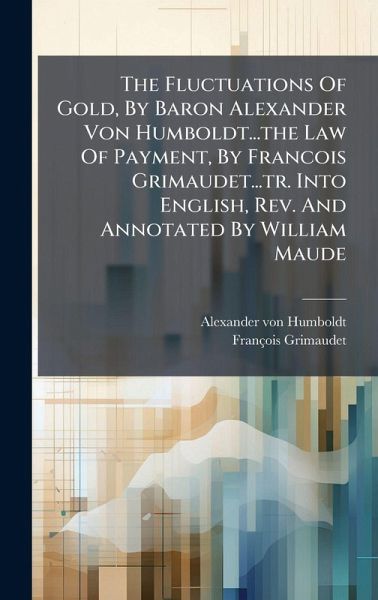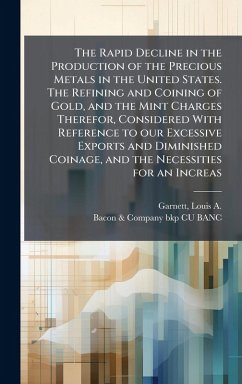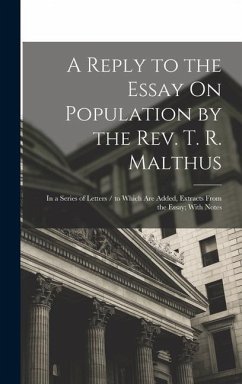
The Fluctuations Of Gold, By Baron Alexander Von Humboldt...the Law Of Payment, By Francois Grimaudet...tr. Into English, Rev. And Annotated By William Maude
Versandkostenfrei!
Versandfertig in über 4 Wochen
29,99 €
inkl. MwSt.
Weitere Ausgaben:

PAYBACK Punkte
15 °P sammeln!
This volume presents two important works in economic history, translated into English and annotated by William Maude. The first, "The Fluctuations of Gold," by Baron Alexander von Humboldt, explores the economic impact and market dynamics surrounding gold. The second, "The Law of Payment," by François Grimaudet, examines the legal and financial principles governing payment systems. Humboldt's analysis provides insights into the historical significance of gold in global economies, while Grimaudet's treatise delves into the intricacies of payment regulations. Together, these works offer a valua...
This volume presents two important works in economic history, translated into English and annotated by William Maude. The first, "The Fluctuations of Gold," by Baron Alexander von Humboldt, explores the economic impact and market dynamics surrounding gold. The second, "The Law of Payment," by François Grimaudet, examines the legal and financial principles governing payment systems. Humboldt's analysis provides insights into the historical significance of gold in global economies, while Grimaudet's treatise delves into the intricacies of payment regulations. Together, these works offer a valuable perspective on the economic and legal foundations of financial systems, appealing to historians of economics, legal scholars, and anyone interested in the evolution of financial thought. This work has been selected by scholars as being culturally important, and is part of the knowledge base of civilization as we know it. This work was reproduced from the original artifact, and remains as true to the original work as possible. Therefore, you will see the original copyright references, library stamps (as most of these works have been housed in our most important libraries around the world), and other notations in the work. This work is in the public domain in the United States of America, and possibly other nations. Within the United States, you may freely copy and distribute this work, as no entity (individual or corporate) has a copyright on the body of the work. As a reproduction of a historical artifact, this work may contain missing or blurred pages, poor pictures, errant marks, etc. Scholars believe, and we concur, that this work is important enough to be preserved, reproduced, and made generally available to the public. We appreciate your support of the preservation process, and thank you for being an important part of keeping this knowledge alive and relevant.












